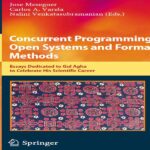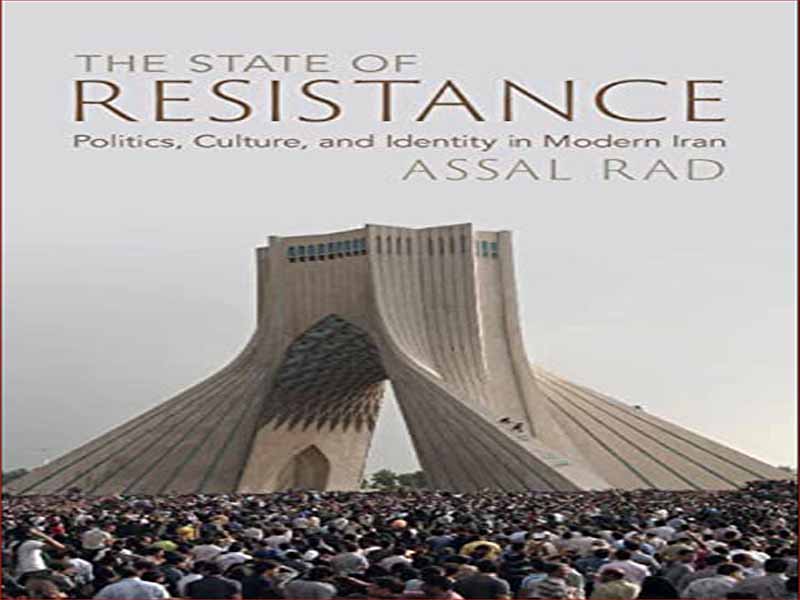- عنوان کتاب: The State of Resistance / Politics, Culture, and Identity in Modern Iran
- نویسنده/انتشارات: assal rad
- حوزه: ایران
- سال انتشار: 2022
- تعداد صفحه: 255
- زبان اصلی: انگلیسی
- نوع فایل: pdf
- حجم فایل: 3.89 مگابایت
در حالی که دولت-ملت ایران مدتهاست توجه رسانهها و سیاست ما را به خود جلب کرده است، این کتاب به بررسی کشوری میپردازد که اغلب سوء تفاهم میشود و جنبههای فراموششده این بحث را بررسی میکند. با استفاده از روشهای نوآورانه چند رشتهای، شکلگیری هویت ملی ایرانی را در یک قرن اخیر و به طور قابلتوجهی نقش مردم ایران را در تعیین خطوط آن هویت بررسی میکند. عسل راد با به کارگیری فرهنگ عامه به عنوان آرشیو مطالعه، قصد دارد یک ایرانی معمولی را در مطالعات ایران معاصر دوباره کشف کند و نشان دهد که چگونه هویت توسط موسیقی، ادبیات و فیلم شکل گرفته است. آثار راد هم از نظر سبک قابل دسترس و هم به دقت تحقیق شده اند، تصویری کل نگر از سیاست، سیاست و جامعه ایران می پرورانند و نشان می دهند که چگونه ایران گذشته با ایران کنونی ارتباط تنگاتنگی دارد. شايد ويژگي سياسي تعيين كننده قرن بيستم، تكثير دولت-ملت ها در جهاني بود كه قبلاً تحت تسلط چند امپراتوري عمدتا اروپايي بود. با از بین رفتن نظام امپریالیستی در پایان جنگ جهانی دوم و به رسمیت شناختن فزاینده ایده هایی مانند حاکمیت و خودمختاری در برابر استعمار، دولت-ملت های جدیدی در سراسر جهان ظهور کردند. تشکیل نهادهای بین المللی مانند جامعه ملل و سپس سازمان ملل متحد، ایجاد این نهادها را با زبان حقوقی که مردم را به شیوه های بدیع به یکدیگر پیوند می داد، تحریم کرد. ویلیام بلیک نوشته معروفی دارد: «آنچه اکنون ثابت شده زمانی فقط تصور میشد»، ضربالمثلی مناسب برای دولت-ملت، که اگرچه ابداع شده است، اما ثابت کرده است که نیروی قابل توجهی در جامعه معاصر است. این پژوهش به بررسی شکل گیری دولت-ملت ایران در قرن بیستم و سیر تحول داستان ملی آن از آن پس می پردازد. هویت ملی در ایران نتیجه یک روند امتیاز و مناقشه از بالا و پایین است. به این ترتیب، این اثر به بررسی نیروهای اپوزیسیونی از پایین میپردازد که تولید تاریخی دولتهایشان را به چالش میکشیدند. علاوه بر این، این مطالعه به بررسی تلاشهای خاندان پهلوی و جمهوری اسلامی برای ساختن هویتهای ملی متناسب با پروژههای ملتسازی میپردازد.
While the Iranian nation-state has long captivated the attention of our media and politics, this book examines a country that is often misunderstood and explores forgotten aspects of the debate. Using innovative multi-disciplinary methods, it investigates the formation of an Iranian national identity over the last century and, significantly, the role of Iranian people in defining the contours of that identity. By employing popular culture as an archive of study, Assal Rad aims to rediscover the ordinary Iranian in studies of contemporary Iran, demonstrating how identity was shaped by music, literature, and film. Both accessible in style and meticulously researched, Rad’s work cultivates a more holistic picture of Iranian politics, policy, and society, showing how the Iran of the past is intimately connected to that of the present. Perhaps the defining political feature of the twentieth century was the proliferation of nation-states in a world previously dominated by a few, mostly European, empires. With the demise of the imperial systemat the end of World War ii and the growing recognition of ideas such as sovereignty and self-determination in the face of colonialism, new nation-states emerged across the globe. The formation of international bodies such as the League of Nations and then the United Nations sanctioned the creation of these entities with legal language that bound people together in novel ways. William Blake famously wrote, “What is now proved was once only imagined,”1 a fitting adage for the case of the nation-state, which, though invented, has proven to be a remarkable force in contemporary society. This study examines the formation of the Iranian nation-state in the twentieth century and the evolution of its national story since then. National identity in Iran is the result of a process of concession and contestation from above and below. As such, this work investigates the oppositional forces from below that challenged the historical production of their governments. Additionally, the study explores the efforts of both the Pahlavi dynasty and the Islamic Republic (IR) to construct national identities that were suitable to their respective nation-building projects.
این کتاب را میتوانید از لینک زیر بصورت رایگان دانلود کنید:
Download: The State of Resistance / Politics, Culture, and Identity in Modern Iran




































نظرات کاربران